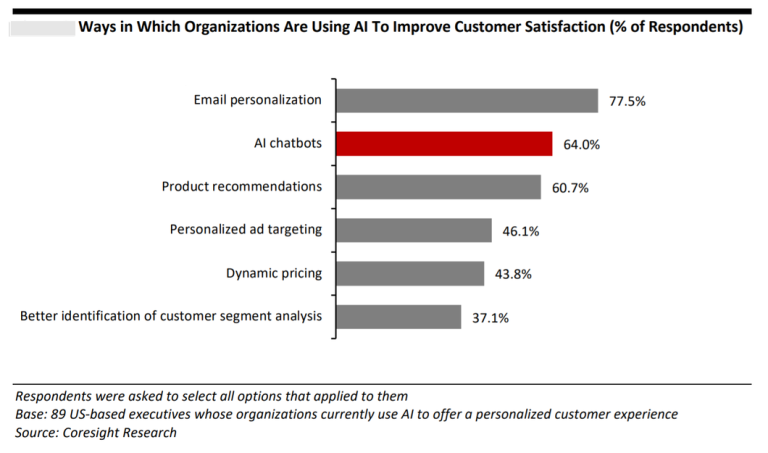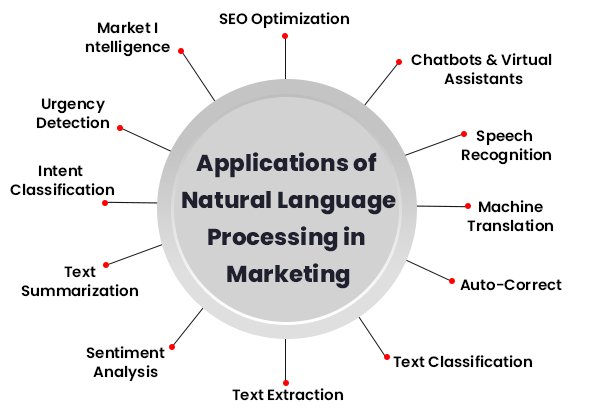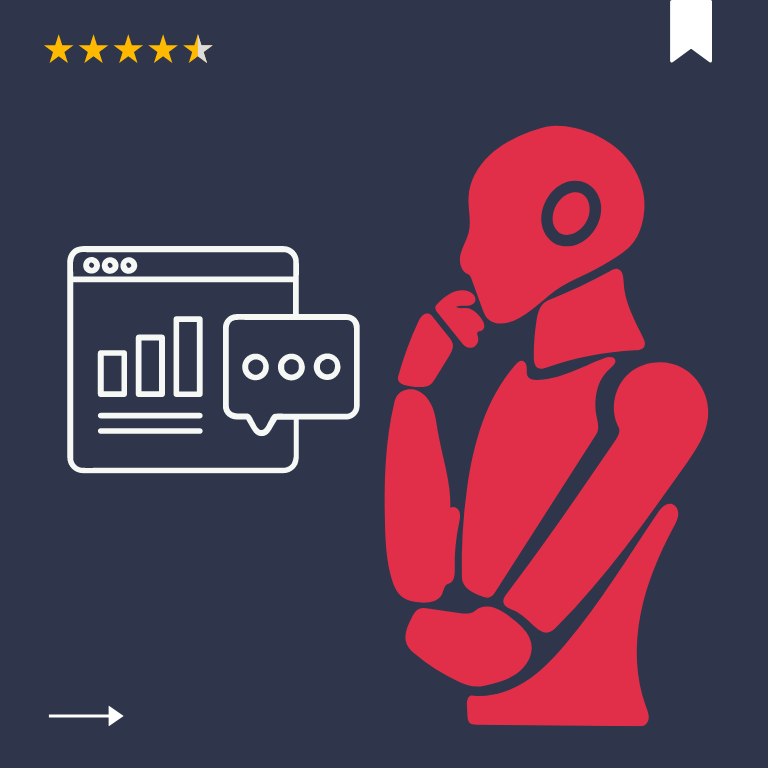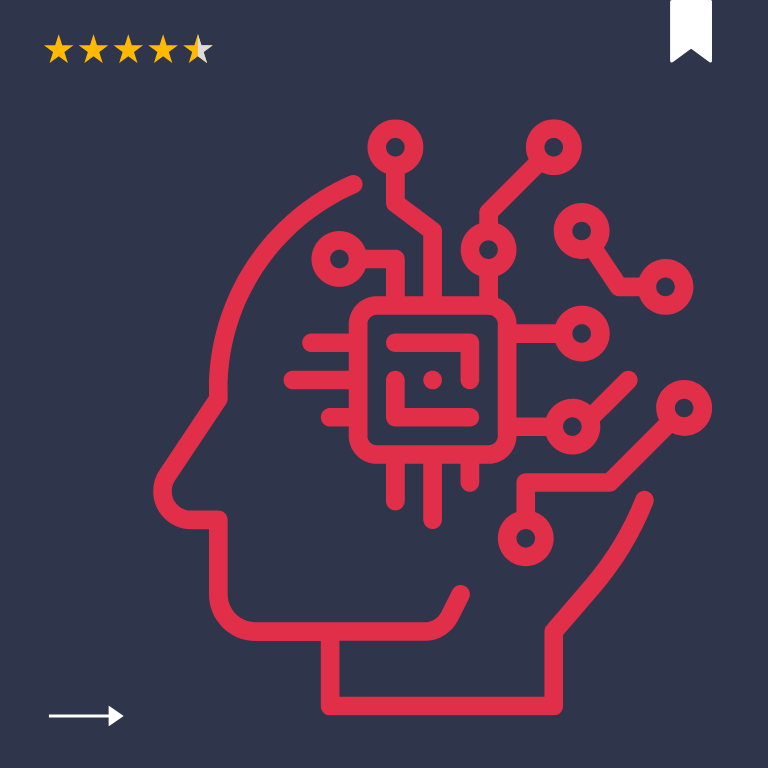Businesses must adapt their marketing strategies to the 63% of consumers who now anticipate customization as usual. Nevertheless, providing a fully personalized experience necessitates the gathering and analysis of a vast amount of data to comprehend the demands of your clients and identify the most efficient ways to engage them.
That’s where AI comes in.
You can tailor marketing messages at scale using the most recent artificial intelligence and machine learning technology, and you can use real-time data to refine campaigns as you go. They also use data to aid in behavior prediction.
Let’s examine what marketing personalization entails and how AI might be of assistance.
Why Is Personalization in Marketing Important?
Consumer now anticipate that brands, especially the ones they use most frequently, would be able to recognize their unique needs and preferences. Marketing customization is a crucial component of a company’s marketing strategy, along with marketing intelligence. At each stage of their journey, prospects want to get messages, suggestions and offers that are specifically tailored to them.
If your company can’t do that, you can be losing out on a lot of money. 27% of customers say they would completely quit using a brand if they had a non-personalized experience, and 45% of customers say they are less inclined to purchase from that company.
You can show that you are paying attention to the needs of each unique customer by personalizing your offerings. By building a relationship with each consumer, you may boost their pleasure and long-term loyalty. This is crucial for account-based marketing (ABM), which depends on marketing that is specifically tailored to each customer.
Apart from giving the best experience to all customers, firms can use customer data to strengthen their marketing efforts. You can determine what kinds of advertisements and messages are most likely to be remembered by looking at customer reviews and using techniques like email tracking software.
What Role Does AI Play in Personalization?
A buyer persona, a group of buyers who share a demographic, such as those who wish to learn how to start their internet radio station, or a specific age or background, is no longer sufficient in today’s market. in particular when consumer preferences and habits are ever-evolving. Yet, unless you use AI, customization on an individual basis is labor- and time-intensive.
Marketers used to have to make assumptions and go through a process of trial and error to determine what customers wanted. You could use a customer’s name in an email even after rule-based personalization became commonplace, but they would still view the same information as everyone else. AI, however, is capable of understanding what content works best for each consumer, and delivering it automatically.
The vast amount of data that marketers have access to, including browsing history, past purchases, social media posts, customer care conversations, etc., presents another difficulty for personalization at scale. Fortunately, AI can collect, organize, and analyze massive volumes of behavioral data, providing you with in-the-moment insights.
For example, data virtualization allows you to access and centralize essentially limitless data from any time and everywhere, while Azure instance types, like memory-optimized and GPU-optimized virtual machines (VMs), enable machine learning-based segmentation and analytics.
As well as improving productivity, AI gives new ways to explore, test, and learn from the data. You may quickly create hundreds of iterations using AI and machine learning, such as multivariant A/B testing to determine exactly what functions best for a certain user type. Even while a campaign is running, your marketing plan can be improved.

How Does AI-Based Marketing Personalization Work?
Email and messaging
To send out emails and communications that are truly tailored, marketers can collect more data and analyze client preferences with the aid of AI and machine learning. It can automatically generate an enticing message for each person and forecast the kind of information that will engage specific people in various situations.
Using automated rules based on historical and current data, AI also makes sure that emails and messages are sent at the best time of day for each consumer. It can also send communications that are specifically tailored to a customer’s location or recent online activity.
Push notifications are one of them; they draw consumers’ attention by displaying on their smartphone screens and posing questions like, “Still interested in [product]? Return to our website to receive 10% discount. It works like customized text and boosts click-through rates
Personalized Advice
Making recommendations for the goods and services your customers genuinely want is another method AI aids in engaging your clients. Once more, AI models pick this up from user behavior and website traffic statistics, and they get wiser the more information they process.
For example, companies like Spotify and Amazon have created recommendation algorithms that dynamically present opportunities to customers. They employ content-based filtering and collaborative filtering to suggest related products based on their features or the interactions that various user groups have had with them.
AI is also capable of providing users of your retail website with tailored recommendations. A chatbot may present a list of products based on the keywords used in the discussion and past purchases, and if the consumer decides to proceed with the purchase, the chatbot may also give a loyalty-based discount and suggestions for related products.

Dynamic Websites
Making recommendations and sending personalized messages is one thing, but how about showing every consumer a unique version of your website? Using current behavioral signals and previous browsing or purchasing histories, AI makes it possible.
A dynamic website that changes the layout and displays different products depending on the user. For instance, if you and I enter our Netflix accounts on laptops, we will see different homepages since the service utilizes our prior viewing history to suggest content we will enjoy.
Using information such as popular searches, trending subjects, and user location, machine learning also aids in content customization. Some websites exploit the local weather to suggest similar products, such as sunscreen adverts during a heatwave.
Forecasting
AI is excellent at forecasting future consumer behavior. The accuracy of those forecasts will increase as more data is gathered by the machine learning algorithms. Marketers can then use applications like pandas DataFrame to evaluate the data.
This information aids marketing teams in personalizing client journeys and adjusting for subsequent consumer actions. With the use of predictive marketing, you can also generate more accurate predictions about the goods that are most likely to sell, which is crucial for allocating budget and raising ROI. Future advertisements can be optimized, and individualized experiences can be tested.
Sentiments and Language
The fact that machines can now infer our mood from what we say has several marketing uses. To ascertain if the emotion being expressed is favorable or negative, an AI model can listen to chats, communications, and customer evaluations. Other than that, the technology will largely assist businesses that rely on voice interactions, including cloud-based contact centers or telemarketing firms.
Also, it can assist marketers in gauging consumer responses to a promotion, good, or service and utilizing the data to enhance the campaign. For instance, a customized special offer on their preferred product could woo a hesitant consumer back.
To give more human-like interactions, chatbots are being programmed with more natural language. As a result, they can reply to certain words or phrases by taking specified actions like making recommendations or reducing an issue. Direct product orders can frequently be made using chat.

Relevant Search
The transition to assistive search is also being driven by developments in natural language programming. A search engine can then direct consumers through the search process by showing them results that are tailored to their unique interests and browsing patterns, increasing the likelihood that they will make a purchase.
Here is where the so-called “smart search” comes into play, offering context-sensitive autosuggest and even correcting for misspellings. (If someone types “cntract” instead of “contract management system” when typing “contract management system,” it will still understand what they meant.)
A buyer can take a picture of an item they want to buy and upload it to a search engine to find comparable things for them thanks to image recognition or machine vision technology. The Chrome plugin for Pinterest already accomplishes this. Also, marketers can utilize this technology to see where customers use their products or services online.
Ideal Approaches
Here are a few additional suggestions to make AI-based marketing personalization effective for you.
The Human Touch
AI speeds everything up by processing massive datasets quickly, such as RDD (Resilient Distributed Dataset) for unstructured data. It then puts the information in front of you, but you’ll still need to employ your marketing skills to decide how that material might boost your campaigns.
Even while machines are capable of learning, you will still need to direct them and instruct them on what to look for. Also, while chatbots and guided searches are fantastic, don’t rely solely on automation—customers still need a personal touch.
Compliance
The GDPR and other data protection laws must be followed while using consumer data. Tell users why the information you’re gathering is vital and keep them informed about what you’re collecting; in many circumstances, users will be pleased to provide you with their information if it will help them receive customized recommendations. The key is trust.
Piece of advice
Because clients have so many options, AI-based marketing personalization becomes more and more essential. A data-driven strategy will allow you to deliver highly-targeted marketing messages to your users and forecast their future behavior, keeping them interested in your company.
By removing time-consuming chores like manual segmentation, AI also makes life easier for marketers. To succeed, though, you’ll need the correct equipment. Less than one-fourth of firms have the necessary technology to provide consistent, customized experiences across channels.
Don’t underestimate the power of personalization. Learn how to apply AI to your marketing and benefit from higher customer loyalty and revenue.


